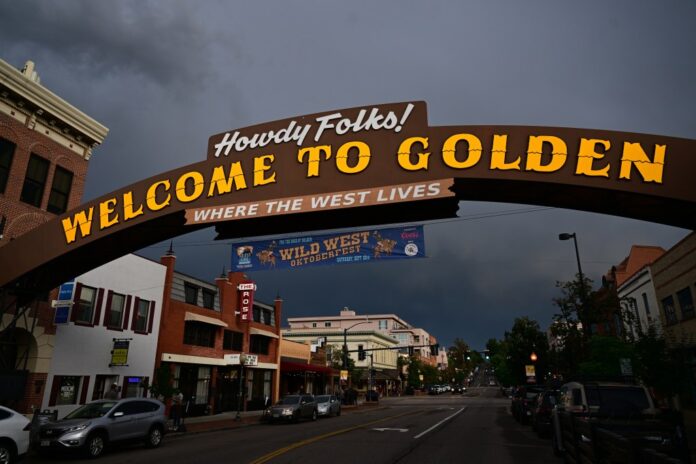
We are experiencing a systematic attack on the truthful telling of history. This should concern us all.
At a time when dedicated national efforts attempt to prevent or reframe the teaching of Black history and the history of other oppressed groups, it is more important than ever that we work to fully understand and reckon with our past.
Racial justice studies are an important tool that governments use to acknowledge history, clarify how history informs social and economic realities in the present, and make informed decisions about how to write a stronger tomorrow, both for historically oppressed groups and for us all.
Recent in-depth coverage from The Denver Post highlighted Colorado’s own tragic legacy of segregation, redlining, violence, and government-backed systematic racism faced by Black Coloradans. This dark part of our state’s history is something that many children won’t learn about in school. As a result, many Colorado natives remain uninformed and unaware of the way that racism was built into our state’s very foundations.
It’s true that Colorado wasn’t a slave state – although slavery wasn’t abolished from the state constitution until 2018 – but it’s also true that our state adopted and emulated many of the racist policies and practices that we typically associate with the American South.
As The Post article details, “sundown” towns dotted the state, where Black individuals and families were turned away at restaurants and faced the threat of violence. Prominent cities utilized redlining to deny Black Coloradans access to housing and to keep schools segregated. The Klu Klux Klan had a powerful and expensive presence in our state at all levels of government, from the state legislature to judgeships to town councils in major Colorado cities like Denver, Pueblo, and Grand Junction.
As Coloradans, it is important that we know our history for two simple reasons: so that we can understand the ways in which it continues to impact us, and so that we can do something about it.
We know disparities exist for Black Coloradans in everything from health care to housing to criminal justice to educational outcomes and economic mobility.
In 2020, 73% of White Coloradans owned their own home, compared with 42% of Black Coloradans, a disparity that has grown every decade since the 1970s. In 2021, almost twice as many Black Coloradans reported skipping health care due to fear of unfair treatment compared to White Coloradans, and Black mothers were three times more likely to die from pregnancy-related causes than White women.
Only 25% of adult Black Coloradans have attained a higher education degree, certificate, or credentials, and Black citizens are five times more likely to report being unjustly stopped by law enforcement than White people. All of this has led to a reality where 50% of Black families in Colorado qualify as low income and just 37% are considered middle class.
These statistics provide a snapshot of challenges faced by the Black community in Colorado today. However, without comprehensive historical documentation of anti-Black laws and practices in our state, we still do not fully understand how we arrived at these realities or how to progress out of them. How have legalized and condoned forms of exclusion, bigotry, and violence contributed to Black Coloradans’ persistent barriers? How did prejudice become woven into financial institutions, the media, law enforcement, and government? Once we know this history, how might we rewrite it?
Racial justice studies are practical tools that allow our citizens and lawmakers to more comprehensively understand systematic racism, quantify racism’s impacts on impacted communities and us all, and make smarter policy decisions that lead to greater equity. Throughout history, and more recently, they have been used to provide opportunities for healing and repair.
We can see examples of racial justice studies outside of Colorado. Evanston, Illinois recently completed a racial justice study report, and, as a result of this study, lawmakers have made free financial literacy classes available and created a Restorative Housing Program to help qualifying Black residents secure funds for homeownership.
The City of St. Petersburg, Florida commissioned a Structural Racism Study, which was completed in 2021. As a result of the study, the mayor has allocated funding to hire a chief equity officer, whose department will be responsible for responding to findings in the study and enacting racial justice initiatives.
But we do not have to look beyond our state to see precedent for racial justice studies. History Colorado recently released a report, commissioned by the state legislature, which documented the atrocities committed at “Indian Boarding Schools” across the state. In consultation with Tribal leadership, the report provides a clear and chilling picture of children being ripped from their families, of forced indoctrination, and worse. Though it remains to be seen how this study will inform policies and programs designed to support Colorado’s Native communities, the report itself is a promising – if harrowing – start on the road toward healing.
Only when we fully understand and acknowledge the wrongs of the past can we meaningfully, equitably and authentically move forward. Racial justice studies are our first step.
MiDian Holmes grew up in Denver and has a rich history in our city. As the founder of the Epitome of Black Excellence & Partnership and owner of 8PM Consulting for Humanity, MiDian has committed her life’s work to the advocacy for social justice, racial reconciliation and equity.
Sign up for Sound Off to get a weekly roundup of our columns, editorials and more.
To send a letter to the editor about this article, submit online or check out our guidelines for how to submit by email or mail.



